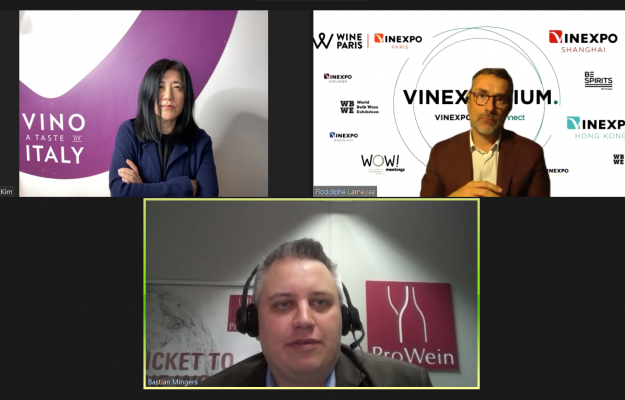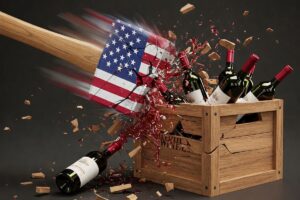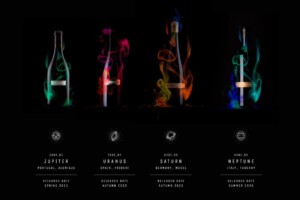Not only organizers of fairs and events, both physical and hybrid, but more and more service providers for the wine business throughout the year, in a certainly different scenario, that of the post-pandemic, where a key could be more targeted events in target markets to bring producers to meet buyers in their markets of reference, in addition to the great classic fairs that until now have seen the world's buyers move to meet producers. With the Covid-19 crisis that has also opened up unprecedented and unthinkable scenarios, at least until a few months ago, such as the collaboration between Vinexposium and Vinitaly, in the immediate future to find common measures and strategies to ensure the presence and safe access of their exhibitors and buyers for the events scheduled in June (Wine Paris and Vinexpo Paris, in Paris from June 10 to 16, and Vinitaly, in Verona from June 20 to 23, about which there are all the uncertainties and doubts mainly related to the health situation and the possibility to travel, but not only), but in the future to create new opportunities and to work with the only possible logic, that of what is best for the wine industry.
With the awareness that, in any case, fairs and physical events, in presence, face to face, are and remain fundamental for the wine business. This is the summary of the scenario that emerged from “WineFuture 2021” (an event organized by the former Master of Wine, Pancho Campo, on stage online today and tomorrow, February 26, with the Consorzio di tutela del Conegliano Valdobbiadene Prosecco Docg as the only Italian supporter), which saw together on a virtual stage, the three largest organizers of wine fairs in the world, VeronaFiere with Stevie Kim, managing director Vinitaly International, Rodolphe Lameyse, CEO Vinexposium, Bastian Mingers, project director ProWein for Messe Dusseldorf.
“Trade fairs, the great market places, have always existed in the history of mankind - began Lameyse - even during crises, and they will always exist. Fairs and exhibitions are strategic for the growth of markets, but they respond to a demand. There is always an exchange of views between supply and demand, and it is important that supply meets demand. Clearly, behind the crisis we are experiencing, which has led to the cancellation of many fairs to date, there is a demand that comes from producers and buyers, for which business events remain a fundamental point. So it is important to continue to be there to support wine producers and buyers. Two years ago none of us would have ever thought we would have witnessed the cancellation of all our events. We have lived through various crises that have put the realization of fairs and appointments at risk, from the French point of view I remember 2015 after the terrorist attacks in Paris that put pressure on events, for example, but we went ahead. Until now we have all made up for it with digital events, which is a good thing, but not good enough. That’s why physical trade shows are still very important for bringing producers and buyers together, and they will continue to be”.
“Vinitaly is a mosaic, a perfect photograph of what Italian wine is - added Stevie Kim - and the Italian wine industry, with exhibitors and visitors arriving from all over Italy. At the same time, it is difficult to think of Vinitaly without Verona, also considering the fact that much business is also done in what we call the “fuori salone” (outside the fair), which becomes an extension of the fair program. Then there is the issue of the social distancing imposed by the Pandemic, which causes a lack of human contact, which for Italians, in particular, is very important, even for business, and is something that is very much missing”.
Proving that this lack of contact exists and is strong, despite the proliferation of digital events, is the success of “ProWein China” in Shanghai in November 2020, as Minger explains: “there was a good presence of visitors from Shanghai and neighboring provinces, which pleased the exhibitors, but we must say that China is a completely different market from the others. The fair was made possible thanks to a great deal of work and strong collaboration with the government, and we were able to hold the event despite the fact that just the day before a case of Covid-19 was detected, and for this reason we think that the event we have scheduled for November 2021 will also be a great success. But it has to be said that China is one step ahead of everyone in managing the pandemic”.
A great unknown factor, for the immediate future, is the one concerning the fairs currently scheduled in June 2021, that is Vinexpo and Vinitaly (whereas ProWein has given, for some time now, an appointment directly to March 2022, editor’s note), which are one of the hottest topics of the moment in the world of wine, because of the many uncertainties still present in the international scenario, both from the point of view of the health emergency and of the possibility to travel, but not only. “Surely they will be different fairs from the ones we experienced in the past - Lameyse emphasizes - there will surely be many restrictions and limitations for exhibitors and visitors, but at the moment these limitations must be taken into account in case one wants to think about doing fairs and events. First of all because they are imposed by the public authorities, in France as in Italy, but also to guarantee the safety of everyone”. And in this sense there is something new, explains the CEO of Vinexposium: “we have started working together with the Vinitaly team, to understand how together we can create “security corridors” to welcome exhibitors and visitors to both fairs. Because what will be applied at Vinexpo will also be applied at Vinitaly, and it is important to give our stakeholders all the guarantees they need. Although obviously there are and will be limitations”.
“I believe that this collaboration, this sense even of solidarity that has emerged among the organizers, is an opportunity. And I believe that in the future - adds Stevie Kim - there will be even more dialogue, because in the end what we want is what is best for producers. It is not a question of Vinitaly, Vinexpo or ProWein. I think of Vinexpo as a family, the issue is not to compete, but to create new opportunities, for everyone, to do even better things”. Certainly, common to all, there is the awareness that the role of fairs, in the future, will be different from what we have seen up to now. “I think it’s a common belief among everyone”, Stevie Kim further emphasizes, “that Covid-19 has changed our lives forever. And it's not necessarily just a bad thing. There are risks, dangers, but also opportunities. It’s time to sit down, analyze what we have done up to now also in terms of services offered to the wine industry, and also think about new things, more efficient and also more sustainable alternatives, with more agile solutions, and using more and more digital tools. We must think about our role not only as organizers of events, but as aggregators, as it has always been after all, and now more than ever as business facilitators”.
“I agree 100%”, adds Bastian Minger, “all of us are no longer just trade show organizers, we don't sell exhibition space, we sell promises of clear business opportunities. We have to be at the service of the industry, give in-depth tools, reports on the most important issues for the industry, we have to be active for the industry 365 days a year. My vision is that when someone goes to look online for something about wine they will no longer have to do it on Google, but on ProWein: we must also become a container and a content provider. We should not think of being sellers of square meters of exhibition, but think of being an integral part of an industry”.
“I share this vision. Covid-19”, Lameyse further adds, “assigned us the duty to review our business model, more generally. From ‘sellers of square footage’ to providers of connections and insights. I am convinced that in-person trade shows and face-to-face meetings will not disappear, because we will always need to balance pure business with human relationships. However, things will change. Think of the trade show business as a circus: we come to town for 3-4 days, we build our booths, we do our show, people come, they meet, and then what? What happens the rest of the year? That's it, the rest of the year is when we need to get better at serving the wine industry, providing content, creating hybrid connections. Two years ago all these digital meetings, remote tastings and so on wouldn’t have existed, for example. These are things that enrich the experience, but in the end there will always be a moment when we would like to meet physically, in person”.
Another scenario that could open up, however, with the difficulties to travel that however, at least for a while, will continue to exist, is the one of focusing on smaller fairs, maybe, but directly in the reference markets of wine trade, a strategy already adopted by all the most important fair players, but that could become more and more important and structural. “There are two big issues to be faced: one is the ability to invest that wine companies will have after hard years like these - underlines Lameyse - and the other is people's willingness to travel. In this sense, I do not think that in the short term the picture will be similar to the one of 2-3 years ago. Some buyers will prefer to move regionally or at least closer than now, and not across continental boundaries. I, for one, doubt that we will see Asian or American visitors in 2022, whether we are talking about Paris or Dusseldorf. If it will be the opposite, of course, we will be happy to host them. But organizing more important fairs in the US or Asia is what we should be doing to bring producers close to wine buyers. So, if we go back to see the crisis as also a series of opportunities, there is no doubt that there are some in digital, but equally that there are some for us, as organizers, in reviewing our road map of events around the world”.
Copyright © 2000/2025
Contatti: info@winenews.it
Seguici anche su Twitter: @WineNewsIt
Seguici anche su Facebook: @winenewsit
Questo articolo è tratto dall'archivio di WineNews - Tutti i diritti riservati - Copyright © 2000/2025

























































































































































































